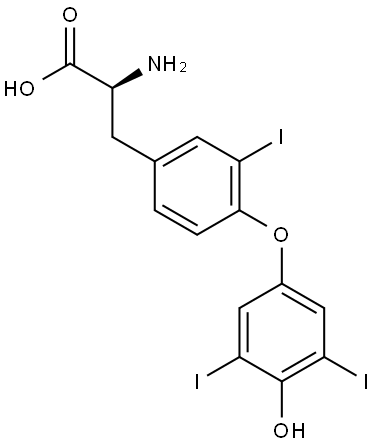3,3',5’-Triiodo-L-thyronine, also known as reverse T3 (rT3), is a thyroid hormone generated by deiodination of the prohormone thyroxine. It is about 1,000-fold less active at the thyroid hormone receptors TRα and TRβ than 3,3',5-triiodo-L-thyronine and commonly described as inactive. However, high serum levels of rT3 are found in neonates and in certain conditions. It reportedly activates TRΔα1, a native form of TRα that lacks a nuclear localization signal and functions in the cytoplasm. Through this action, rT3 initiates actin polymerization, particularly in astrocytes and neurons.

